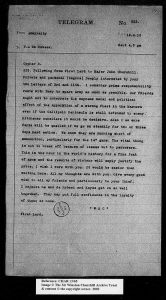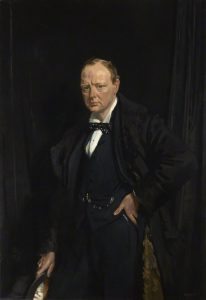StoryLine
Battle of Britain

Winston Churchill, Parliament Square, London © Sue Lowry & Magellan PR
January 1, 1970
On 18 June 1940, Churchill gave a rousing speech to the British people, announcing: ‘… the Battle of France is over. The Battle of Britain is about to begin.’ Four days later, France surrendered to Germany and Hitler turned his attention to Britain.
As early summer gave way to July and August, the threat of invasion loomed over Britain and the Luftwaffe (German air force) began attacking shipping in the English Channel, coastal towns, airfields and Royal Air Force (RAF) bases. All the resources of Fighter Command in the South were used to combat the attacks and, in August, the RAF managed to inflict heavy casualties on the Luftwaffe.
On 20 August, Churchill made what was to become one of his most famous speeches to the House of Commons, in which he stated that ‘Never in the field of human conflict was so much owed by so many to so few.’ The speech made clear the huge significance of the battle undertaken by the under-resourced RAF.
By September, it was clear that the RAF were successfully fighting the attacks, and the Luftwaffe switched their attention from the coastal towns and airfields to London. In early September a massive series of raids involving nearly four hundred German bombers and more than six hundred fighters targeted docks in London’s East End. On 15 September 1940, which became known as ‘Battle of Britain’ day, the RAF destroyed a huge formation of Luftwaffe over London and the South, forcing Hitler to postpone plans to invade Britain.
The Battle of Britain had been won – even if only by a small margin – and the threat of invasion averted.
Subscribe
WANT MORE?
Get the Churchill Bulletin delivered to your inbox once a month.





